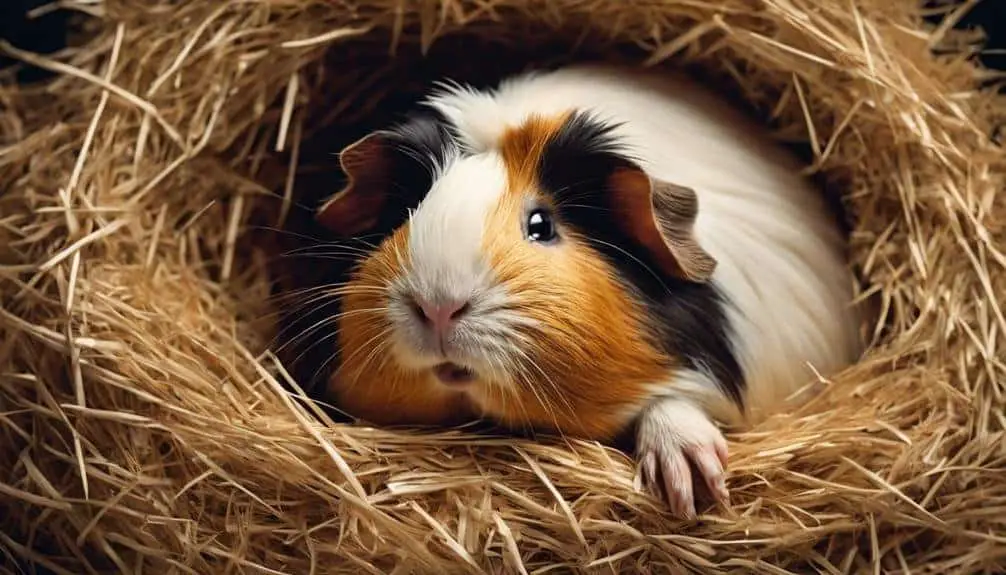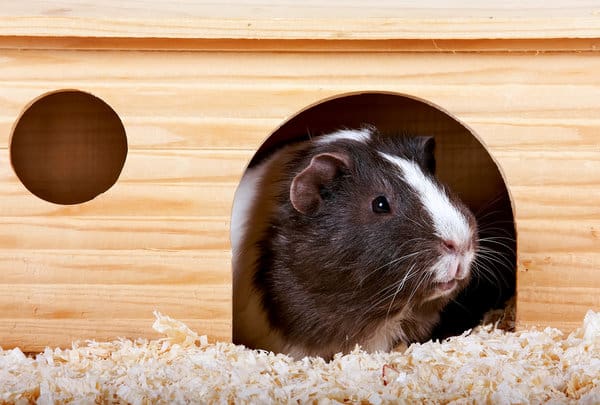How Long Do Guinea Pigs Stay Pregnant?
Did you know that guinea pigs stay pregnant for an average of 59 to 72 days, with the gestation period typically lasting around 68 days?
Understanding the duration of a guinea pig’s pregnancy is just the beginning of unraveling the fascinating journey of reproduction in these small rodents.
Let’s explore the various stages, signs, and care tips associated with guinea pig pregnancies to ensure the well-being of these adorable creatures.
Guinea Pig Gestation Period
The duration of pregnancy for guinea pigs, known as the gestation period, typically lasts between 59 to 72 days, with an average duration of around 68 days. Female guinea pigs can give birth after a little over 2 months of gestation. Monitoring for signs of labor is crucial as the pregnancy progresses to prepare for the birth. It’s advisable to consult a vet to ensure an accurate timeline for the pregnancy and to address any concerns that may arise during this period.
During the gestation period, it’s essential to keep a close eye on the pregnant guinea pig’s health and behavior. Monitoring her weight, ensuring a balanced diet, and providing a comfortable environment are key factors in supporting a healthy pregnancy. Being observant for any changes in the guinea pig’s appetite, activity levels, or nesting behavior can help anticipate the upcoming birth and ensure a smooth delivery process. Consulting a vet can provide valuable guidance and support throughout the pregnancy journey.
Signs of Guinea Pig Pregnancy
Observing guinea pigs for signs of pregnancy is crucial for ensuring their well-being and preparing for potential births. Here are three key signs to look out for:
- Increase in Body Weight and Swollen Abdomen: Pregnant guinea pigs will experience a noticeable increase in body weight as the pregnancy progresses. Their abdomen will also appear swollen due to the developing fetuses.
- Changes in Behavior: Keep an eye out for changes in behavior such as nesting or burrowing. Pregnant guinea pigs may exhibit nesting behaviors by creating a cozy space using bedding materials. Burrowing is another common behavior seen in pregnant guinea pigs as they prepare for birth.
- Vaginal Discharge: Vaginal discharge may be present in pregnant guinea pigs. If you observe any discharge, it’s essential to seek veterinary confirmation to ensure the health of the pregnant guinea pig.
Remember to monitor signs of pregnancy closely, especially if you’re unsure, and consult a veterinarian for professional guidance.
Stages of Guinea Pig Pregnancy

When considering the stages of guinea pig pregnancy, it is essential to understand the progression of development from conception to birth. Guinea pig pregnancies typically last between 59 to 72 days, with an average gestation period of around 68 days. Monitoring for signs of labor and preparing for birth are crucial aspects during this period. Consulting a vet for accurate pregnancy timelines and guidance is highly recommended to ensure the well-being of the pregnant guinea pig and her offspring.
| Stages of Pregnancy | Description |
|---|---|
| Early Pregnancy | Embryos implant in the uterine lining and begin to develop into fetuses. |
| Mid-Pregnancy | Fetal growth accelerates, and the mother’s nutritional needs increase. |
| Late Pregnancy | The mother prepares for birth, exhibiting nesting behaviors and restlessness. |
Understanding the stages of guinea pig pregnancy allows for better monitoring and care, ensuring a healthy outcome for both the mother and her pups.
Diet for Pregnant Guinea Pigs
During a guinea pig’s pregnancy, ensuring a balanced and nutritious diet is crucial for the health of both the mother and her developing pups. Here are some essential guidelines to follow for the diet of pregnant guinea pigs:
- High-Quality Hay: Providing unlimited access to high-quality hay is important for pregnant guinea pigs as it supports proper digestion and provides essential fiber.
- Fresh Vegetables: Including fresh vegetables such as bell peppers, kale, and spinach in the diet of pregnant guinea pigs is vital as these foods offer essential nutrients and Vitamin C necessary during pregnancy.
- Clean Drinking Water: Pregnant guinea pigs should always have access to clean drinking water to prevent dehydration and ensure proper hydration throughout the pregnancy.
Additionally, it’s crucial to monitor the pregnant guinea pig’s weight and overall condition regularly.
To prevent complications, avoid feeding them sugary treats and high-calcium foods that could lead to issues like urinary stones.
Care Tips for Pregnant Guinea Pigs

To ensure the well-being of pregnant guinea pigs, maintaining a stress-free environment and closely monitoring their dietary intake are essential components of their care.
Pregnant guinea pigs have a gestation period of 59 to 72 days, with an average of 68 days. It’s crucial to provide them with unlimited access to hay, fresh vegetables, and clean water. Increasing vitamin C-rich foods like green bell peppers, kale, spinach, and broccoli in their diet is important for their health.
Monitoring the eating and drinking habits of pregnant guinea pigs, minimizing stress, ensuring regular exercise, and limiting grooming activities are vital for their well-being. As they approach the final stages of gestation, providing a cozy corner for the sow in the week before birth is recommended.
During this time, make sure she’s comfortable and undisturbed to reduce any potential stressors that could affect her and the developing pups.
Conclusion
In conclusion, guinea pigs typically stay pregnant for an average of 59 to 72 days, with the gestation period lasting around 68 days.
It’s crucial to monitor pregnant guinea pigs for signs of pregnancy, provide proper diet and care, and seek veterinary guidance if needed.
By being attentive to their needs and ensuring a healthy environment, you can help your pregnant guinea pig have a successful pregnancy and birth.







